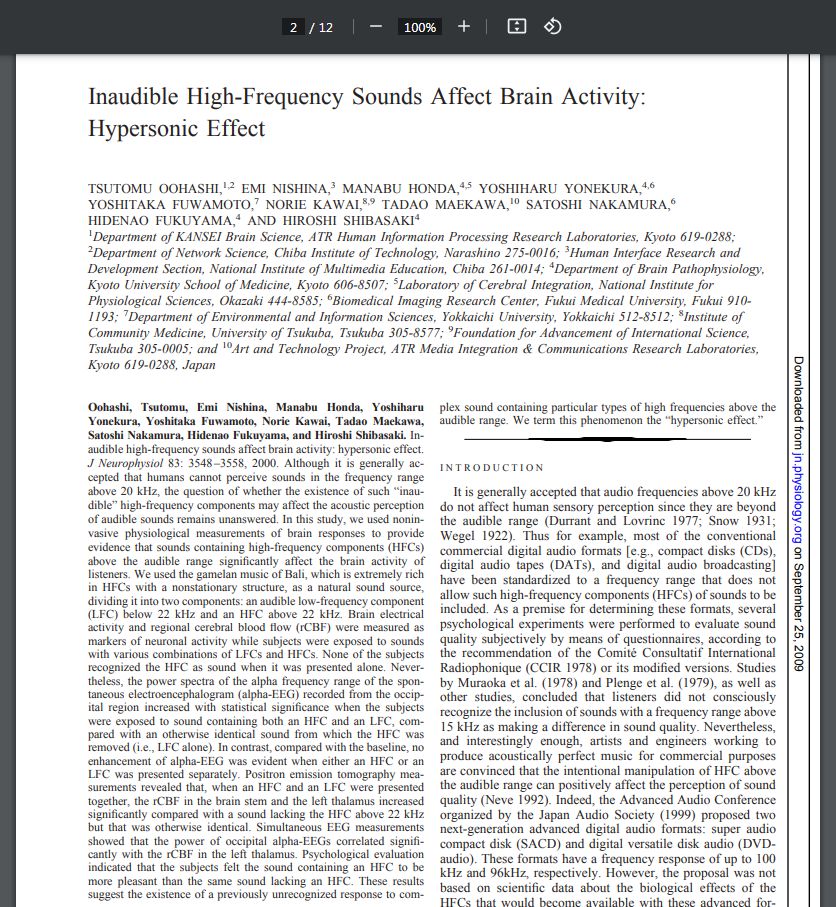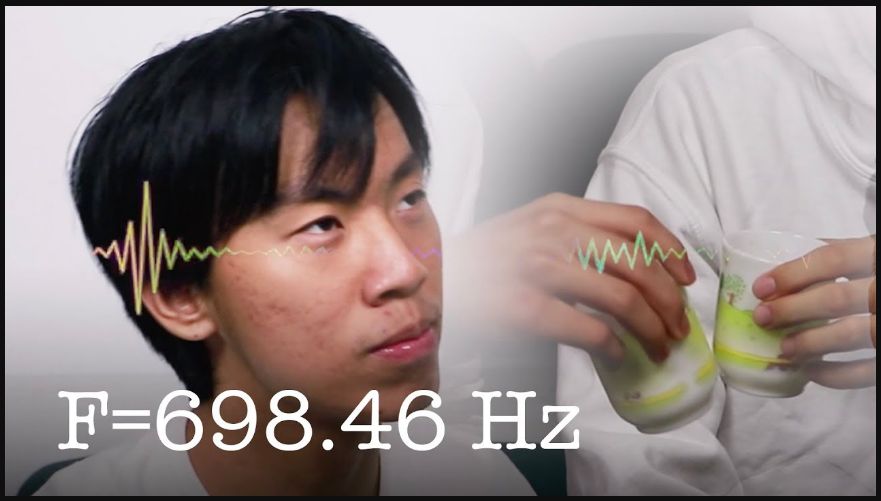Biological Effects of High Frequency Sound
“…results suggest the existence of a previously unrecognized response to complex sound containing particular types of high frequencies above the audible range. We term this phenomenon the ‘hypersonic effect.” May explain why most listeners can hear a supposedly impossibly high-frequency difference between a 12 kilo Hertz square wave versus a 12 kilo Hertz sine wave. … Read more

